A conference sponsored by the Constitutionalism and Rule of Law (CAROL) Policy and Practice Lab at the Kellogg Institute for International Studies and The Law School at the University of Notre Dame, with participation by invitation only.
This conference will explore and extend the work of the Commission on Unalienable Rights (COUR), an independent and nonpartisan body convened from 2019 through 2020 and composed of academics, philosophers, and practitioners. Its charge was to provide the US State Department with advice on human rights grounded in the nation’s founding principles and the principles of the 1948 Universal Declaration of Human Rights. On August 26, 2020, the Commission issued its final report, a document approved unanimously by all 11 COUR Commissioners that has since been translated into seven languages. We bring the work of the Commission into sharper focus and into dialogue with a broad range of interlocutors, including critics and including scholars and jurists from outside of the United States. The conference features an innovative and focused format that reflects this ambition, boasting five keynote addresses, a response from a member of the Commission, and a subsequent panel discussion. The objective for this arrangement is to foster substantive, balanced, engaged, and probative discussion of key ideas and issues generated by the Commission’s report. We aim to generate an atmosphere of free inquiry, civil and collegial discourse, and lively intellectual exchange.
Our Theme: Human Rights
Human rights - what they are, and what they demand of us - are among the most celebrated yet contested ideals of liberal democracy. The Constitutionalism and Rule of Law (CAROL) at the University of Notre Dame proudly presents its inaugural conference, entitled “Inalienable Rights and the Traditions of Constitutionalism,” to address these monumental questions. This conference will feature compelling talks, earnest discussion, and a warm intellectual community, all on the beautiful campus of the University of Notre Dame.
Our Focus: The COUR Report
This conference will explore the work of the Commission on Unalienable Rights (COUR), a body convened from 2019 through 2020 and composed of academics, philosophers, and practitioners. Its charge was to provide the U.S. government with advice on human rights grounded in the nation’s founding principles and international principles of rights. On August 26, 2020, the Commission issued its final report, a document that was signed and approved unanimously by all 11 COUR commissioners and that has since been translated into seven languages.
Rooted in American founding principles and informed by the Universal Declaration of Human Rights, as adopted by the U.N. General Assembly in December 1948, the Commission’s report addresses key foundational principles and places them within a broad international context. This conference brings together the work of the Commission into sharper focus and broadly examines several key themes from the Commission’s report, including the nature of inalienable rights, the legacy of the American political tradition, the American commitment to international human rights, and the place of human rights in foreign policy. The COUR report is not the endpoint but a launchpad for further consideration about the meaning and importance of rights.
Our Format: Innovative Public Discourse
CAROL conferences aim to enrich public discourse and foster innovative research on human flourishing, constitutionalism, and the rule of law. In an age when most citizens listen only to people with whom they already agree, we present a truly unique and public-spirited conference. The conference features a number of wide-ranging views on human rights across the political spectrum. Our ambitions are big: foster a public discussion that is thorough and deep, while yet wide-ranging and accessible to anyone who wants to understand how rights relate to law and human flourishing. The format of the conference reflects this distinctive ambition of the CAROL lab and the Kellogg Institute.
In the spirit of promoting public discourse, the conference will feature five keynote addresses which will present broad principles and ideas for the audience’s consideration. Each keynote will be followed by a panel of experts who take up a major question, and engage it from a wide variety of viewpoints. These keynotes and panels will be followed by a public Q & A for Commission members: a chance to ask them questions and learn about what guided their proposals. In short, the conference presents a unique opportunity to encourage public discourse on the place of human rights in a constitutional order.
We have assembled a truly impressive schedule of keynote speakers and panelists.
Keynote Presenter
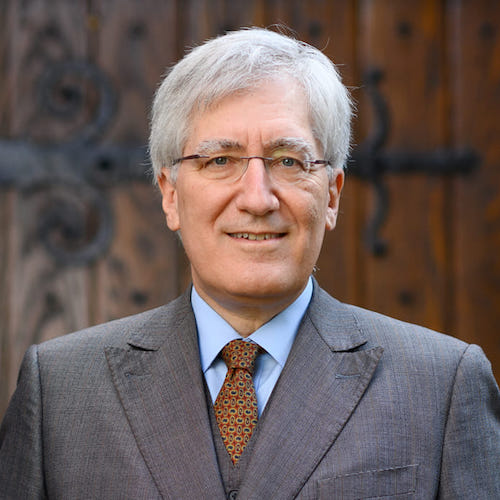
Robert P. George is McCormick Professor of Jurisprudence and Director of the James Madison Program in American Ideals and Institutions at Princeton University and a Visiting Professor at Harvard Law School. He formerly served as a Judicial Fellow at the Supreme Court of the United States where he received the Justice Tom C. Clark Award. Professor George has also served as the Chairman of the U.S. Commission on International Religious Freedom, the President’s Council on Bioethics, a presidential appointee to the United States Commission on Civil Rights, and as the U.S. member of UNESCO’s World Commission on the Ethics of Science and Technology. He is the author of Making Men Moral: Civil Liberties and Public Morality (1993), In Defense of Natural Law (2001), and Conscience and Its Enemies (2013), as well as co-author of Conjugal Union: What Marriage Is (2014), Embryo: A Defense of Human Life (2011), and Body-Self Dualism in Contemporary Ethics and Politics (2008). He is a recipient of the United States Presidential Citizens Medal, the Honorific Medal for the Defense of Human Rights of the Republic of Poland, the Bradley Prize for Intellectual and Civic Achievement, the Philip Merrill Award of the American Council of Trustees and Alumni, the Paul Bator Award of the Federalist Society for Law and Public Policy, the Sidney Hook Award of the National Association of Scholars, a Silver Gavel Award of the American Bar Association, the Charles Fried Award of the Harvard Law School Federalist Society, the Irving Kristol Award of the American Enterprise Institute, and Princeton University’s President’s Award for Distinguished Teaching. He has given the John Dewey Lecture in Philosophy of Law at Harvard, the Guido Calabresi Lecture in Law and Religion at Yale, the Elizabeth Anscombe Memorial Lecture in Bioethics at Oxford, the Sir Malcolm Knox Lecture in Philosophy at the University of St. Andrews in Scotland, and the Frank Irvine Lecture in Law at Cornell. Dr. George earned his B.A. from Swarthmore College, his M.T.S. and J.D. degrees from Harvard University, and his D.Phil., B.C.L. and D.C.L. from Oxford University.
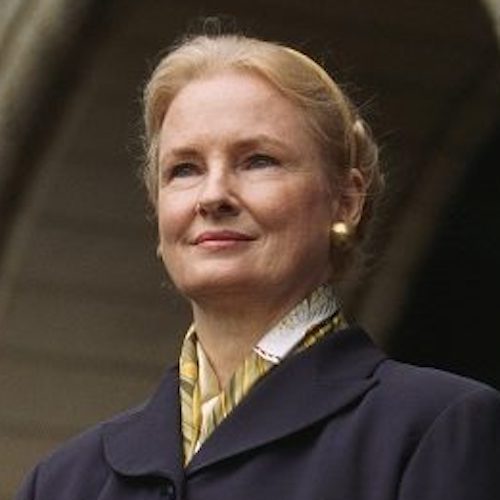
Former Ambassador Mary Ann Glendon is the Learned Hand Professor of Law, emerita, at Harvard University and is former U.S. Ambassador to the Holy See. She served as Chair to the U.S. State Department Commission on Unalienable Rights from 2019-2020, as a member of the Commission on International Religious Freedom from 2012 to 2016, and the U.S. President’s Council on Bioethics from 2001 to 2004. Professor Glendon was elected in 1991 to the American Academy of Arts and Sciences, served as the President of the Pontifical Academy of Social Sciences from 2003 to 2013, and was member of the Board of Supervisors of the Institute of Religious Works from 2013 to 2018. In 1995, she was the Vatican representative to the international 1995 Beijing Conference on Women sponsored by the United Nations. She has written works including The Forum and the Tower (2011), Traditions in Turmoil (2006), A World Made New: Eleanor Roosevelt and the Universal Declaration of Human Rights (2001), A Nation Under Lawyers (1996), Rights Talk (1991), The Transformation of Family Law (1989), Abortion and Divorce in Western Law (1987), and The New Family and the New Property (1981). Additionally, Professor Glendon serves on the board of directors for First Things. She received the National Humanities Medal in 2006, and she was the 2018 recipient of the Notre Dame de Nicola Center for Ethics and Culture’s Evangelium Vitae Medal. She earned her B.A., J.D., and Master's of Comparative Law from the University of Chicago.
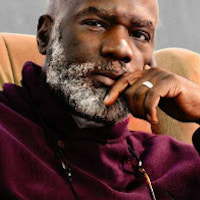
Sherman Jackson is Distinguished Professor and the King Faisal Chair in Islamic Thought and Culture and Professor of Religion and American Studies and Ethnicity. His research interests begin in classical Islamic Studies, including law, theology and intellectual history, and extend to placing this legacy in conversation with the realities of modern Islam in the West, most especially Muslim communities in America. This implicates issues of race, immigration, liberalism, democracy, religion in the modern world, pluralism, constitutionalism, Muslim radicalism and related areas of inquiry, again, all in conversation with the classical and post-classical legacies of Islam. He is now in the early stages of a major book, tentatively entitled: "Beyond Good and Evil: Shari'ah and the Challenge of the Islamic Secular." His past books include Initiative to Stop the Violence: Sadat's Assassins and the Renunciation of Political Violence (2015), Sufism for Non-Sufis? Ibn ‘Atâ' Allâh al-Sakandarî's Tâj al-‘Arûs (2012), Islam and the Problem of Black Suffering (2009), Islam and the Blackamerican: Looking Towards the Third Resurrection (2005), On the Boundaries of Theological Tolerance in Islam: Abû Hâmid al-Ghazâlî's Faisal al-Tafriqa (2002), and Islamic Law and the State: The Constitutional Jurisprudence of Shihâb al-Dîn al-Qarâfî (1996). He received a Ph.D. Oriental Studies: Islamic Near East from the University of Pennsylvania in 1990.
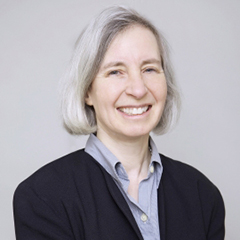
Martha Minow has been a Professor at Harvard Law School since 1981, where her courses include civil procedure, constitutional law, fairness and privacy, family law, international criminal justice, jurisprudence, law and education, nonprofit organizations, and the public law workshop. An expert in human rights and advocacy for members of racial and religious minorities and for women, children, and persons with disabilities, she also writes and teaches about digital communications, democracy, privatization, military justice, and ethnic and religious conflict. Professor Minow’s books include Saving the News: Why The Constitution Calls for Government Action to Preserve the Freedom of Speech (2021); When Should Law Forgive? (2019); The First Global Prosecutor: Promise and Constraints (co-edited, 2015); In Brown’s Wake: Legacies of America’s Constitutional Landmark (2010), Partners, Not Rivals: Privatization and the Public Good (2002), Engaging Cultural Differences: The Multicultural Challenge in Liberal Democracies (co-edited 2002), Between Vengeance and Forgiveness: Facing History After Genocide and Mass Violence (1998), Not Only for Myself: Identity, Politics and Law (1997); and Making All the Difference: Inclusion, Exclusion, and American Law (1990). Her honors include the Sargent Shriver Equal Justice Award (2016), the Joseph B. and Toby Gittler Prize, Brandeis University (2016), nine honorary degrees (in law, education, and humane letters) from schools in three countries, the Gold Medal for Outstanding Contribution to Public Discourse, awarded by the College Historical Society of Trinity College, Dublin, in recognition of efforts to promote discourse and intellectualism on a world stage, the Holocaust Center Award, and the Sacks-Freund Teaching Award, awarded by the Harvard Law School graduating class. She completed her undergraduate studies at the University of Michigan and afterwards received a Master’s degree in education from Harvard and a J.D. from Yale.
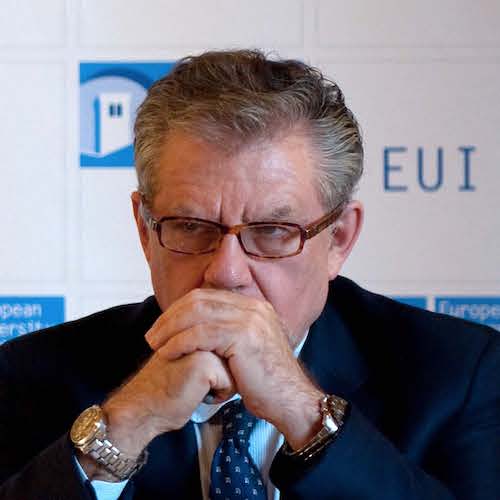
J.H.H. Weiler is University Professor as well as holder of the European Union Jean Monnet Chair at New York University School of Law and Co-Director of the Jean Monnet Center for International and Regional Economic Law & Justice. Weiler is also President of European University Institute (EUI), Florence, Italy. Weiler is also Professor at the National University of Singapore; Honorary Professor at University College, London; Honorary Professor at the Department of Political Science, University of Copenhagen; and Co-Director of the Academy of International Trade Law in Macao, China.
From 1978 to 1985, Weiler was a member of the Department of Law at the European University Institute, Florence, and co-founded its Academy of European Law in 1989. He later served as Professor of Law at the University of Michigan Law School (1985-1992) and as Manley Hudson Professor and Jean Monnet Chair at Harvard Law School (1992-2001). Weiler served as a member of the Committee of Jurists of the Institutional Affairs Committee of the European Parliament, co-drafting the European Parliament's Declaration of Human Rights and Freedoms and Parliament's input to the Maastricht Inter-intergovernmental Conference. He is a WTO and NAFTA Panelist, and a founding editor of the European Journal of International Law, the European Law Journal, and the World Trade Review.
Weiler is author of articles and books in the fields of international, comparative, and European law. His publications include: Un’Europa Cristiana (Rizzoli, 2003); European Constitutionalism Beyond the State, Edited with Marlene Wind (Cambridge Univ. Press, 2003), Integration in an Expanding European Union: Reassessing the Fundamentals. Edited with Ian Begg and John Peterson, (Blackwell Publishing, 2003), Constitution of Europe - do the New Clothes have an Emperor? (Cambridge Univ. Press, 1998), The EU, the WTO, and the NAFTA: Towards a Common Law of International Trade? (Academy of European Law, EUI, Florence/Oxford Univ. Press, 2000), The European Court of Justice. Edited with Grainne de Burca, (Oxford Univ. Press, 2001) and a novella, Der Fall Steinmann (Piper 2000). Weiler is a Fellow of the American Academy of Arts. He holds degrees from Sussex (BA); Cambridge (LLB and LLM); and The Hague Academy of International Law (Diploma of International Law). He earned his Ph.D. in European Law at the EUI, Florence.
Respondents from the Commission on Unalienable Rights
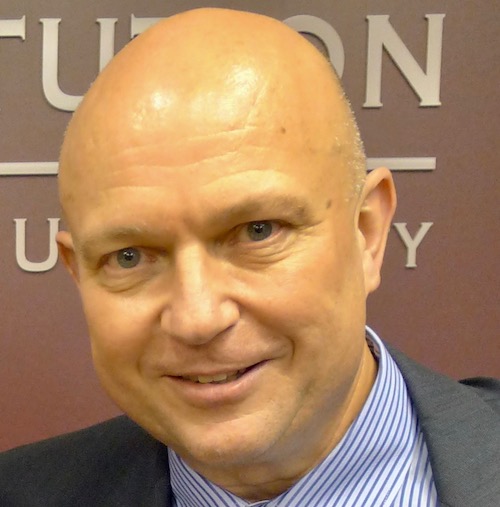
Kenneth Anderson is a professor of law at Washington College of Law, American University, Washington DC. He teaches and writes in the areas of public and private international law, human rights, and the law and ethics of war and national security. More recently his research and teaching have focused on law and regulation of emerging technologies, such as artificial intelligence and robotics. He graduated from UCLA in 1983 and Harvard Law School in 1986, and subsequently practiced international tax law at Sullivan & Cromwell in New York City. He joined Human Rights Watch as the first director of the HRW Arms Division, where he helped launch the international campaign to ban landmines. He served as the first general counsel to the Open Society Institute, a philanthropic initiative of George Soros. He is the author of a book on international organizations, Living With the UN (Hoover Institution Press, 2012) and, with Benjamin Wittes, a book on national security and counterterrorism, Speaking the Law: The Obama Administration’s Speeches on National Security Law (Brookings Institution Press, 2015). Up through 2021, he served as book review editor of the national security and law website Lawfare.
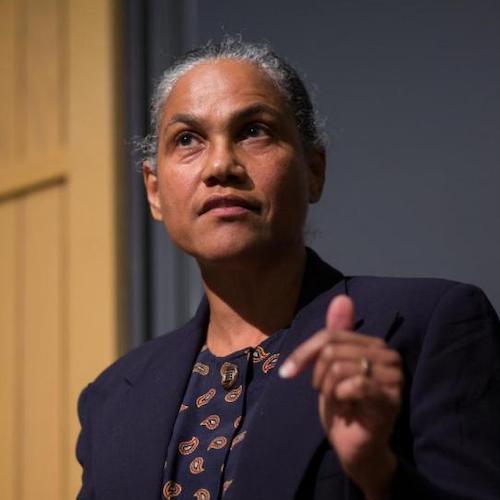
Jacqueline Rivers is the current Executive Director and Senior Fellow for Social Science and Policy of the Seymour Institute for Black Church and Policy Studies as well as Senior Fellow at the King’s College in New York City. She has served as a lecturer in Sociology and African American Studies at Harvard University and presented at Princeton University, the University of Notre Dame, the University of Pennsylvania, the Vatican, Stanford University, and the United Nations. Having earned her B.A. from Harvard Radcliffe College and Ph.D. from Harvard University, she served from 2001 to 2004 as executive director for the National TenPoint Leadership Foundation, and as executive director and founder of MathPower, a leading community-based nonprofit in Boston for mathematics education reform in urban schools. Professor Rivers is a doctoral fellow in the Multidisciplinary Program in Inequality and Social Policy at the Harvard Kennedy School, and her publications include “The Paradox of the Black Church and Religious Freedom”, a chapter in the volume Not Just Good but Beautiful and another article co-authored with Orlando Patterson in The Cultural Matrix, published by Harvard University Press.
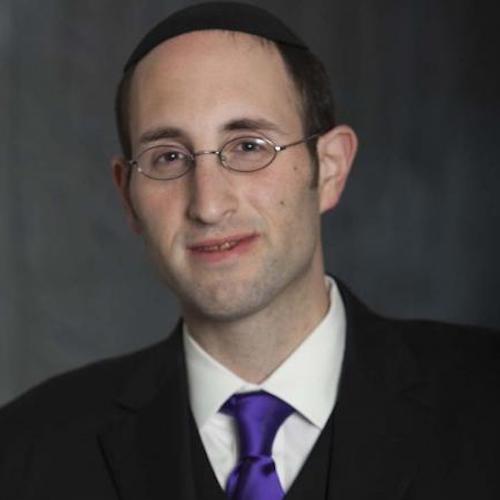
Rabbi Dr. Meir Soloviechik is a senior rabbi of Congregation Shearith Israel in Manhattan and writer as well as current director of the Straus Center for Torah and Western Thought at Yeshiva University. In 2019-2020 he was a member of the U.S. State Department’s independent, nonpartisan advisory Commission on Unalienable Rights. He is a regular contributor to First Things and Commentary Magazine as well as to the journal Azure where he was contributing editor. Rabbi Soloviechik previously served as resident scholar of the Jewish Center in New York City, Associate Rabbi at Congregation Kehilath Jeshurun in New York City, and as Rabbi of Congregation Shearith Israel in New York City-- the oldest Jewish congregation in the United States. He writes a monthly essay in Commentary and lectures internationally to Jewish and non-Jewish audiences on topics relating to faith in America, the Hebraic roots of the American founding, Jewish theology, bioethics, wartime ethics, and Jewish-Christian relations. He graduated from Yeshiva College in New York City and received rabbidic ordination at Rabbi Isaac Elchanan Theological Seminary. He also studied philosophy of religion at Yale University Divinity School and earned his Ph.D. in Religion from Princeton University.
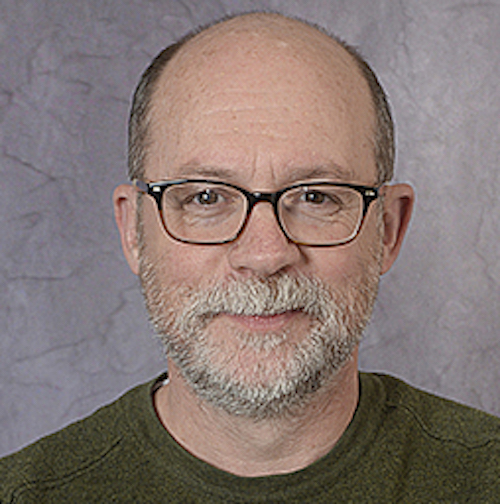
Christopher Tollefsen is a current Distinguished Professor of Philosophy at the University of South Carolina, focusing on natural law ethics, practical ethics, and the ethics of false assertion. He has twice been a visiting fellow at the James Madison Program at Princeton University, and also at the Eudaimonia Institute at Wake Forest University. Professor Tollefsen has chaired the Department of Philosophy and served as a member of the State Department Commission on Unalienable Rights. He is the author, co-author, or editor of six books, including Lying and Christian Ethics (2014), Biomedical Research and Beyond: Expanding the Ethics of Inquiry (2008), and Embryo: A Defense of Human Rights (2008). He received his B.A. from Saint Anselm College and his Ph.D. from Emory University.
Panelists
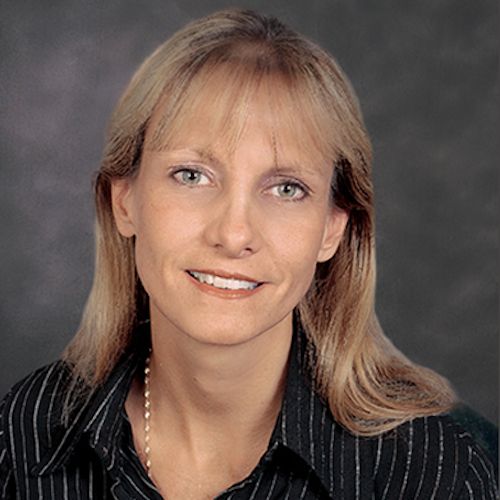
Jane Adolphe is a Professor of Law at Ave Maria School of Law as well as a Catholic international human rights lawyer. She has previously worked prosecuting criminal cases for the Alberta Crown Prosecutor’s Office and as an outside consultant to the Holy See’s Secretariat of State, Section for Relations with the States from 2003-2011. She also served in the same section as an expert on work related to human rights’ treaties ratified by the Holy See, most notably the Convention on the Rights of the Child and its Optional Protocol on the Sale of Children, Child Prostitution and Child Pornography. Professor Adolphe worked as both an outside legal advisor for Popes John Paul II and Benedict XVI and as an inside expert on international human right issues within the United Nations System in Vatican City State through Pope Francis’ papacy in 2020. During this time she established the International Center on Law, Life, Faith and Family. She co-edited the publications The Persecution of Christians in the Middle East: Prevention, Prohibition, and Prosecution (2018), and Equality and Non-Discrmination: Catholic Roots, Current Challenges (2019), as well as Clerical Sexual Misconduct: An Interdisciplinary Analysis (2020) and St. Paul, the Natural Law and Contemporary Legal Theory (2012). She was named one of the Top 20 persons of 2020 by Inside the Vatican Magazine. She earned her B.A. from the University of Calgary, her LL.B./B.C.L. from the University of McGill, her J.C.L in Canon Law from the Pontificia Università della Santa Croce, and her J.C.D. from the Pontificia Università della Santa Croce.
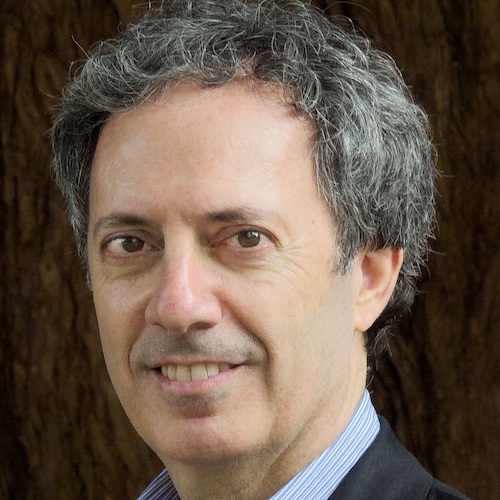
Peter Berkowitz is the Tad and Dianne Taube Senior Fellow at the Hoover Institution of Stanford University. His teaching and scholarship focused on constitutional government, conservatism and progressivism in the United States, liberal education, national security law, and Middle East politics. Professor Berkowitz has taught at both George Mason University School of Law and Harvard University. From 2019-2021, he served as the Director of the State Department’s Policy Planning staff, executive secretary of the department’s Commission on Unalienable Rights, and senior advisor to the Secretary of State. In 2017, he won the Bradley Prize for his contributions towards the celebration of American exceptionalism. Professor Berkowitz is the author of several books, including Constitutional Conservatism: Liberty, Self-Government, and Political Moderation (2013), Israel and the Struggle over the International Laws of War (2012), Virtue and the Making of Modern Liberalism (1999), and Nietzsche: The Ethics of an Immoralist (1995). He is a contributor at RealClearPolitics. At the Hoover Institution, he is a member of the Military History/Contemporary Conflict Working Group. He also serves as dean of studies for the Public Interest Fellowship and teaches for the Tikvah Fund in the United States and in Israel. He earned a B.A. from Swarthmore College, an M.A. from the Hebrew University of Jerusalem, and a J.D. and Ph.D. from Yale University.
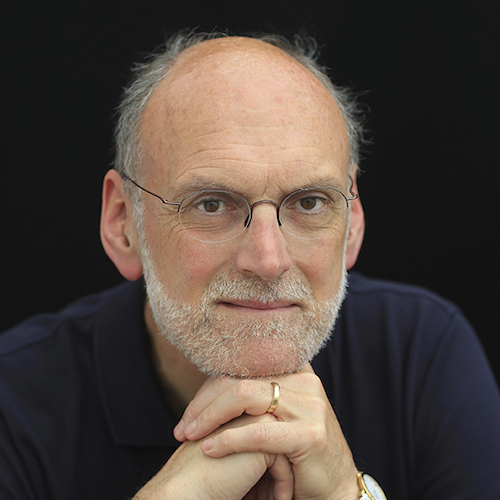
Nigel Biggar is an Anglican priest and Regius Professor of Moral and Pastoral Theology at the University of Oxford. Having earned his B.A. from Oxford University, his M.A. at Regent College, and Ph.D. at the University of Chicago, he was ordained as a deacon in the Church of England in 1990 and a priest in 1991. After serving as Librarian and Research Fellow at Oxford he worked as both a Chaplain and a Fellow, later taking the Chair of Theology at the University of Leeds, and after that the Chair of Theology and Ethics at Trinity College, Dublin. In 2017, he initiated a five-year project at Oxford entitled “Ethics and Empire,” aiming to scrutinize critiques against the historical facts of empire. This past year, he was appointed Commander of the Order of the British Empire in the 2021 Birthday Honours for services to higher education. His publications include What’s Wrong with Rights? (Oxford, 2020), Between Kin and Cosmopolis: An Ethic of the Nation (James Clarke, 2014), In Defence of War (Oxford, 2013, 2014), Behaving in Public: How to Do Christian Ethics (Eerdmans, 2011), Religious Voices in Public Places (Oxford, 2009) (co-ed.), Aiming to Kill: the Ethics of Suicide and Euthanasia. London (Darton, Longman, and Todd, 2004), Burying the Past: Making Peace and Doing Justice after Civil Conflict (Georgetown University Press, 2003) (ed.), and numerous other pieces in a variety of academic and popular publications.
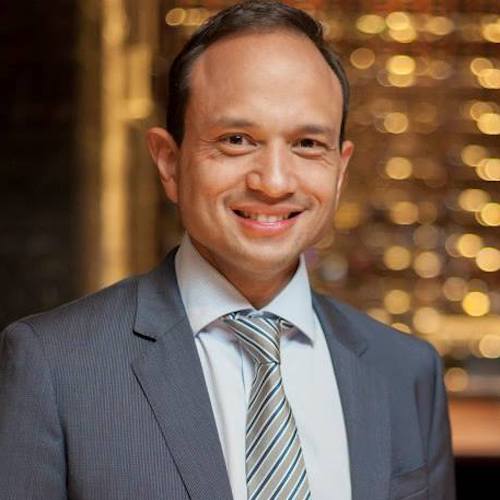
Carlos Bernal is a professor at the University of Dayton School of Law, law professor at the University of La Sabana (in Bogota, Colombia). Previously he was professor at Macquarie Law School (in Sydney, Australia) and University Externado of Columbia, and a sitting justice on the Colombian Constitutional Court from 2017 to 2020. Professor Bernal’s scholarship focuses on the interpretation of constitutional rights, comparative constitutional change, the philosophical foundations of tort law, and general jurisprudence with a focus on the intersection of social ontology and legal theory. He has held visiting professorships at the Faculties of Law of the Universities of Paris I and X and the University of Leon, in addition to senior research fellowships at Yale Law School, the King’s College Law School, and the max Planck Institute for Comparative Public Law and International Law. He took an LL.B in 1996 from the University Externado of Colombia, an S.J.D. from the University of Salamanca, and an M.A. and Ph.D. from the University of Florida.

Laurence Burgorgue-Larsen is Professor in Public Law at the Sorbonne Law School (University Paris 1), Member and Former Vice-Deputy of the Institut de Recherche en droit international et européen de la Sorbonne (IREDIES), Director of the Studies Group on International Law and Latin American Law (GEDILAS) of the Sorbonne within the IREDIES and Director of the Master 2 “Human Rights and the European Union”. She is the Director of the Collection “Cahiers européens” in the French editor Pedone and member of numerous Advisory Board of Legal Journals (e.g., EJHR, NQHR, RTDH). She researches and teaches in the areas of Human Rights Law, Comparative constitutional Law and European and International Law. Her publications (in three languages) are diverse in the field of regional human rights: she is the author of La Convention européenne des droits de l’homme (Paris, Lextenso, 2019, 3ème ed.); El diálogo judicial. Máximo desafío de los tiempos jurídicos modernos, México, Porrúa, 2013, 315 p. (Col. Instituto Mexicano de Derecho procesal constitucional) ; the co-author, with A. Úbeda de Torres, of The Inter-American Court of Human Right. Case law and commentaries (OUP, 2011).
She has also managed several collective researches, La Charte des droits fondamentaux de l’Union européenne saisie par les juges en Europe / The EU Charter of Fundamental Rights as apprehended by National Judges, Paris, Pedone, 2017; Derechos humanos en contexto en América latina. El impacto del sistema interamericano de derechos humanos en los Estados partes, Tirant lo Blanch, Valencia-México, 2016 (col. Justicia interamericana) and Le défi de l’interprétation de l’interprétation et de l’application des droits de l’homme, Paris, Pedone, 2017.
Her last publication is focused on a comparative, dynamic and critical perspective of the creation and functioning of the 3 Regional HR Courts – Les 3 Cours régionales des droits de l’homme in context. La justice qui n’allait pas de soi (Paris, Pedone, 2020).

Gresa Caka-Nimani has served as President of the Constitutional Court of the Republic of Kosovo since May 2021 and on the Court as a Judge since 2015. She undertook her legal studies at the Law Faculty of the University of Prishtina and earned her Masters Degree in European Integration and Regionalism from the University of Graz, Austria. She is also certified on issues pertaining to justice and governance, including from the United States Federal Judicial Center and strategic leadership programs from the United States Federal Executive Institute. President Caka-Nimani previously served as Senior Legal Advisor and a Team Leader for the Democracy and Governance Office at the United States Agency for International Development, as well as serving from 2006 to 2008 as coordinator and advisor for the US Government support to the Working Group, and the Constitutional Commission responsible for drafting the Constitution of the Republic of Kosovo. She has been recognized for her achievements through awards from USAID Kosovo, five Meritorious Honor Awards from the State Department, and the Michael K. White Memorial Award for her contributions towards drafting the Constitution. She continues to work with the Institute for Democracy and Electoral Assistance in Hague and is the author of the chapter “Kosovo’s Independence Constitution: A Unilateral Commitment to an Internationalized Constitution-making” in the book Constitution-makers on Constitution-Making.
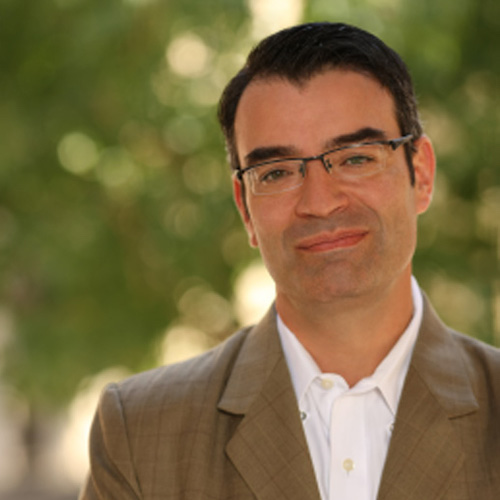
Jim Cavallaro is President of the University Network for Human Rights and has been professor of law as well as founder and director of the International Human Rights and Conflict Resolution Clinic at the Mills Legal Clinic at Stanford Law School, in addition to director of the Stanford Human Rights Center. Professor Cavallaro spent his early career working with Central American Refugees at the U.S.-Mexican border and with human rights groups in Chile, as well as opening in 1994 a joint office for Human Rights Watch and the Center for Justice and International Law (CEJIL) in Rio de Janeiro, serving as director. In 1999, he founded the Global Justice Center, a leading Brazilian human rights NGO. He proceeded to join Harvard Law School in 2002 and was appointed in 2004 clinical director of the Human Rights Program, later serving as Executive Director of the Program from 2005 to 2011, joining Stanford Law School in 2011. Professor Cavallaro then served on the Inter-American Court of Human Rights as commissioner from 2014-2017 and as President from 2016-2017. He is currently a visiting professor at Yale Law School and Wesleyan University. Professor Cavallaro is the author of Doctrine, Practice, and Advocacy in the Inter-American Human Rights System (2019), “Positively Complementary: How the International Criminal Court Can Prevent Atrocity and Advance Accountability by Emulating Regional Human Rights Institutions” (2019), No Nos Toman en Cuenta: Pueblos Indigenas y Consulta Previa en Las Pisciculturas de la Arcancia (2013), Living Under Drones: Death, Injury and Trauma to Civilians from U.S. Drone Practices in Pakistan (2012), and “Reevaluating Regional Human Rights Litigation in the Twenty-First Century: the Case of the Inter-American Court” (2008). He earned a B.A. from Harvard University and a J.D. from the UC Berkeley School of Law.
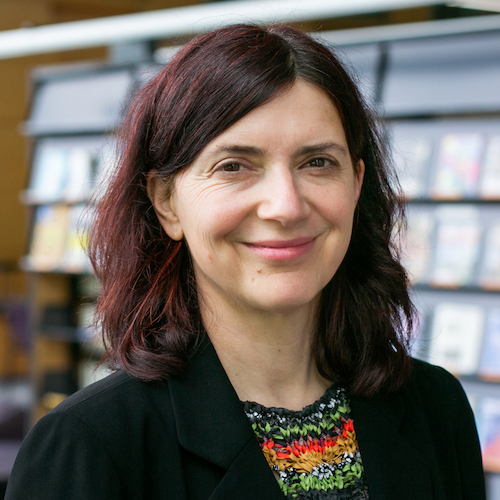
Alexandra Huneeus is a Professor of Law and Director of the Global Legal Studies Center at the University of Wisconsin-Madison Law School. Having received her Ph.D., J.D., and B.A. from the University of California-Berkeley, Professor Huneeus’ scholarship focuses on human rights law with an emphasis on Latin America. She has previously worked as a journalist and has, since 2017, worked as a Foreign Expert Jurist in the Colombian Jurisdicción para la Paz (JEP), a court created as part of the Colombian peace process. At the University of Wisconsin, she also serves as a Director of the Center for Law, Society, and Justice, and is Chair of the University of Wisconsin Human Rights Program, which she co-founded, and Director of the Global Legal Studies Program. She is on the Board of Editors of the American Journal of International Law, and of Law and Social Inquiry, and has served on the Board of Trustees of the Law and Society Association and the American Society for Comparative Law, and as section chair for the Midwest Political Science Association (Law and Courts) and for the ASIL Midwest Interest Group on International law. In 2013, she was awarded the American Association for Law Schools Scholarly Papers Prize, as well as the American Society for Comparative Law Award for Younger Scholars (for two different articles), and in 2014 she was awarded an NSF grant to explore the impact of the Inter-American Court of Human Rights on domestic prosecutions of state atrocity.
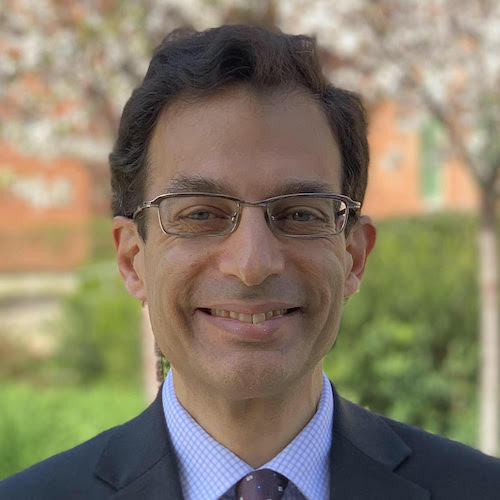
Seth Kaplan is a current Professorial Lecturer in the Paul H. Nitze School of Advanced International Studies at Johns Hopkins University, as well as Senior Adviser for the Institute for Integrated Transitions (IFIT) and consultant to the World Bank, USAID, the State Department, and OECD. Having earned his M.A. from the Wharton School of the University of Pennsylvania and his Ph.D. from the University of Utrecht, Professor Kaplan is the author of the U.S. State Department’s Political Transitions Analysis Framework and co-author of the UN-World Bank Flagship Report “Pathways for Peace: Inclusive Approaches to Preventing Violent Conflict” and USAID’s Fragility Assessment Framework, in addition to Fixing Fragile States: A New Paradigm for Development (2008), Betrayed: Promoting Inclusive Development in Fragile States (2013), and Human Rights in Thick and Thin Societies: Universality Without Uniformity (2018). Additionally, Professor Kaplan was the lead author, coordinator, and managing editor of an eight-country comparative study for the United States Institute of Peace on social contract formation in fragile states and a flagship publication for IFIT articulating a new approach to regime transitions in post-conflict and post-authoritarian countries.

David Moore is the Sterling and Eleanor Colton Endowed Chair in Law and the Associate Director of International Center for Law and Religious Studies at Brigham Young University Law School. Professor Moore previously served as an assistant and associate professor at the University of Kentucky College of Law, and prior to that at the University of Chicago Law School. He has also been a Visiting Professor at George Washington University Law School and an Associate Dean for Research and Academic Affairs at Brigham Young University Law School. Professor Moore has worked as Acting Deputy Administrator and General Counsel of the U.S. Agency for International Development and currently served on the Organization for Security and Cooperation in Europe’s Moscow Mechanism. In 2020, he was elected to a brief term on the Human Rights Committee, a body of independent experts that oversees states’ compliance with the International Covenant on Civil and Political Rights. Professor Moore also serves as an Associate Director of the International Center for Law and Religion Studies. He earned his B.A. from Brigham Young University and his J.D. from Brigham Young University
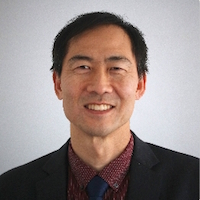
David Tse-Chien Pan is a Professor of German at the University of California-Irvine School of Humanities., his research focus lies in the problem of aesthetic experience as a mediator of human history. Professor Pan served on the Secretary of State’s Advisory Committee on Unalienable Rights. He was the Executive Director of the Telos-Paul Piccone Institute from its founding in 2012 until 2019, overseeing annual conferences in New York in addition to conferences in L’Aquila, Melbourne, Beijing, Irvine, Chongqing, Berlin, New Delhi, Moscow, Ragusa, and Haifa. He is both an editor and writer for academic journal Telos. He earned a B.A. from Stanford University, an M.A. from Columbia University, and a Ph.D. from Columbia University.
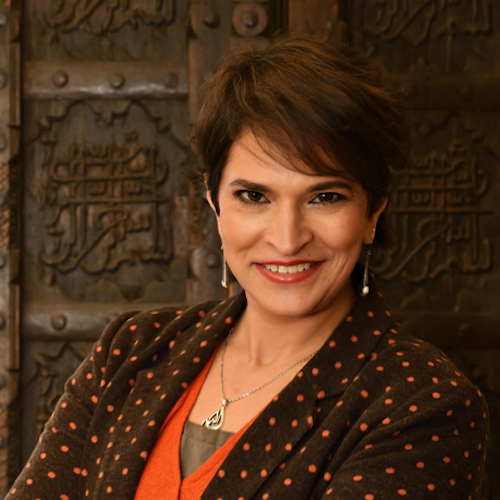
Asifa Bano Quraishi-Landes is a Professor of Law at the University of Wisconsin-Madison specializing in comparative Islamic and U.S. constitutional law, currently focusing on modern Islamic constitutional theory. Professor Qurashi-Landes is a founding board member of the National Associaton of Muslim Lawyers, Muslim Advocates, and American Muslims Intent on Learning and Activism. Additionally, she is an associate of the Muslim Women’s League and has served on it as both board member and President. Professor Quraishi-Landes has served as a Public Delegate on the United States Delegation to the United Nations Commission on the Status of Women, on the Task Force on religion and the Making of U.S. Foreign Policy for the Chicago Council on Global Affairs, and as an advisor to the Pew Force on Religion and Public Life. Professor Quraishi-Landes is the past president of the National Association of Muslim Lawyers, current member of the governing board of the Association of American Law Schools’ Section on Islamic Law, current affiliate of the Muslim Women’s League, past president and board member of Karamah: Muslim Women Lawyers for Human Rights, and a current fellow with the Institute for Social Policy and Understanding and a member of the "Opinion Leaders Network" for the British Council's "Our Shared Future" project. She is a 2009 Carnegie Scholar and a 2012 Guggenheim Fellow. She earned a B.A. from the University of California-Berkeley, a J.D. from the University of California-Davis, an LL.M. from Columbia Law School, and a S.J.D. from Harvard Law School.
Aaron Rhodes is a German international human rights activist and writer, currently President of the Forum for Religious Freedom-Europe and senior fellow at the Common Sense Society. Dr. Rhodes has long been an advocate for the reform of international human rights law and institutions. He has served in a variety of political positions and as Assistant to the President of Boston University before moving to Vienna to engage in Eastern European educational reform with the Institute for Human Sciences. He helped found and was policy advisor to the International Campaign for Human Rights in Iran, further also investigating human rights matters in Cuba, Japan, Korea, Pakistan, Malaysia, Hong Kong, and other nations. Dr. Rhodes also co-founded human rights think-tank the Freedom Rights Project and served as Executive Director of the International Helsinki Federation for Human Rights for fourteen years. Dr. Rhodes is the author of The Debasement of Human Rights: How Politics Sabotage the Ideal of Freedom (2018) and is the Human Rights Editor for Dissident. He received a B.A. from Reed College and Ph.D. from the University of Chicago in the Committee on Social Thought.
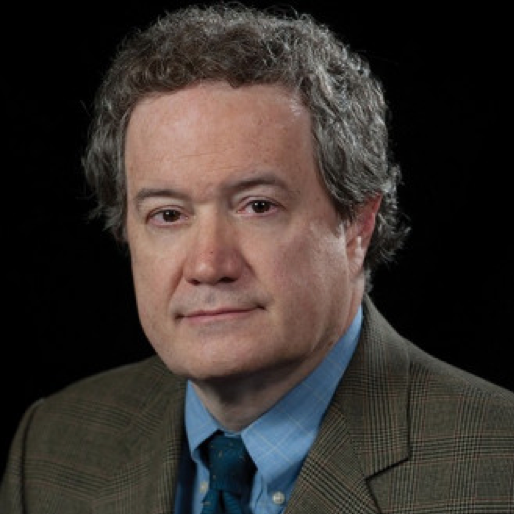
William Saunders is Chair of the Religious Liberties Practice Group of the Federalist Society. He is a religious liberty and human rights scholar at The Catholic University of America and a Law Fellow with the Institute for Human Ecology, a Professor and Director of the Program in Human Rights in the School of Arts & Sciences and Co-director of the Center for Religious Liberty at the Columbus School of Law. Before joining The Catholic University of America, Mr. Saunders served as Senior Vice President and Senior Counsel with Americans United for Life for ten years. From 1999 to 2009, he was Senior Fellow in Bioethics and Human Rights Counsel at the Family Research Council.
Mr. Saunders’ new book, Unborn Human Life and Fundamental Rights: Leading Constitutional Cases Under Scrutiny, appeared in 2019. His articles and book chapters have been published by the university presses of Harvard, Villanova, Brigham Young, Fordham, Georgetown, Houston, Scranton, and the Catholic University of America. In addition to speaking and writing frequently on bioethics topics, Mr. Saunders has submitted testimony to the President’s Council on Bioethics, as well as to UNESCO’s Committee on Bioethics, and has briefed Congressional staff and state legislatures. He is a regular columnist for the National Catholic Bioethics Quarterly. Mr. Saunders served on the official United States delegation to the UN Special Session on Children in 2001/02. In 2004, he served on the NGO Working Committee in connection with the Doha Intergovernmental Conference for the Family. Mr. Saunders is Senior Fellow with the Religious Freedom Institute, and Affiliated Scholar with the Pellegrino Center for Clinical Ethics at the Georgetown University School of Medicine. He is President of the Fellowship of Catholic Scholars and a member of the boards of the International Association of Catholic Bioethicists, the International Right to Life Federation, the Institute on Religion and Democracy, and the Society of Catholic Social Scientists. Mr. Saunders attended the University of North Carolina at Chapel Hill on a Morehead scholarship. He obtained his degree in law from the Harvard Law School.
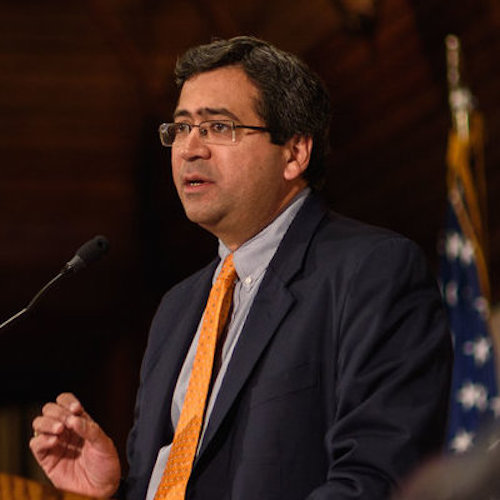
Timothy Shah is a political scientist specializing in religious freedom, religion and global politics, and the history of political thought. With his wife, Rebecca Shah, he is based in Bangalore, India. With funding from the Templeton Religion Trust, he spearheaded an analysis of the religious freedom landscape as well as viable religious freedom strategies in South and Southeast Asia (2017-2020). In addition to serving as a Distinguished Research Scholar in the Politics Department at the University of Dallas, Shah also serves as a senior fellow at the Archbridge Institute as well as the principal investigator for the Freedom of Religious Institutions in Society (FORIS) project at the Religious Freedom Institute. He received his PhD and AB from Harvard University.
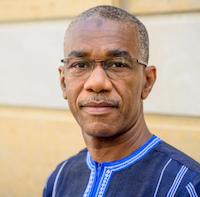
Moumouni Soumano is an assistant professor of administrative and political sciences at the University of Bamako (Mali) and the Kellogg Institute’s 2021-2022 Hewlett Visiting Fellow for Public Policy. He studies development cooperation in fragile and conflict-affected states, with a focus on linking research and policy reform. He previously served as the senior program manager and executive director of the Centre Malien pour le Dialogue Interpartis et la Démocratie (CMDID) and has a dozen years of practical experience in working to support democratic consolidation and capacity-building for political and civil society actors in West Africa. While at Kellogg, Soumano will work on a book project entitled the “Preservation of Human Rights and the Roles of the State and the International Community in Mali: Weaknesses, Synergies, and Prospects for Development,” which examines the impact of human rights violations on Mali’s national construction and development, as well as the role of the state and external support organizations in ensuring support for human rights. He uses a qualitative approach to examine human rights violations in northern and central Mali in a comparative dynamic both within and outside the country. Soumano has held a number of research positions at universities worldwide, most recently at the University of Chicago, where he studied human trafficking in Mali. He has written extensively on development cooperation, youth, female political engagement, democratic consolidation, institutional reforms in African countries, as well as training modules on political dialogue. Soumano earned a PhD in public law and a master’s degree in economic public law at University of Paris Nord XIII, and a master’s degree in diplomacy and international organization management at the University of Paris Sud XI Faculté Jean Monnet.
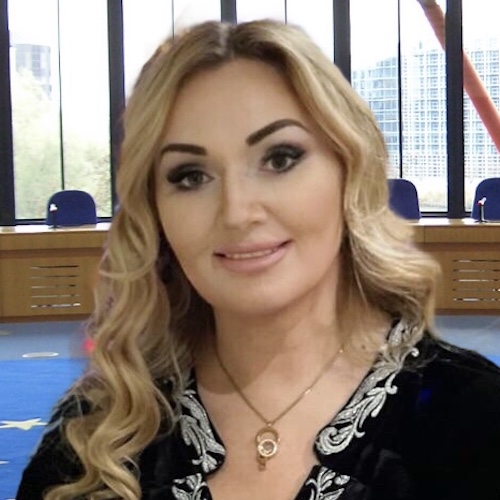
Ganna Yudkivska is currently a sitting judge on the European Court of Human Rights in respect of Ukraine. Having graduated from the Law Faculties of the Taras Shevchenko Kyiv National University and Robert Schuman University, as well as her Ph.D. from the Academy of Advocacy of Ukraine, Dr. Yudkivska previously served as a defense attorney and expert for various human rights organizations. She led the USC Shoah Foundation project on genocide studies and worked as a lawyer at the Registry of the ECtHR and advisor to the Comissioner for Human RIghts on the Council of Europe. On the bench, she has previously served as Vice-President of Section V of the Court, and currently serves as President of Section IV of the COurt. She is currently a Professor of European and international law at the Academy of Advocacy of Ukraine, as well as a member of the Executive Board of the European Society of International Law and of the Executive Board of the Ukrainian Association of International Law.
Notre Dame Faculty
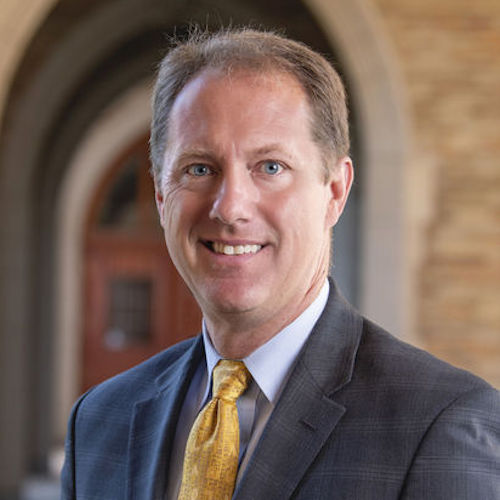
Roger Alford is Professor of Law of the University of Notre Dame Law School and concurrent Professor at the Keough School of Global Affairs. Alford teaches and writes in a wide range of subject-matter areas, including international trade, international arbitration, international antitrust, and comparative law. Before entering the legal academy, he served as a law clerk to Judge James Buckley of the United States Court of Appeals for the D.C. Circuit, and Judge Richard Allison of the Iran-United States Claims Tribunal in The Hague, Netherlands. He practiced law with Hogan & Hartson (now Hogan Lovells) in Washington, D.C., and was also a senior legal advisor to the Claims Resolution Tribunal for Dormant Activities in Zurich, Switzerland. He was the Academic Director of the London Global Gateway from 2016-2017 and Associate Dean for Graduate and International Programs from 2013-2017. He served as the Deputy Assistant Attorney General for International Affairs with the Antitrust Division of the U.S. Department of Justice from 2017-2019.
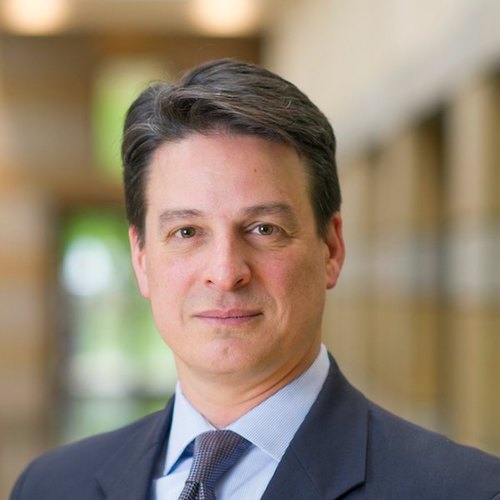
Paolo Carozza has served as a Professor of Law at Notre Dame since 1996. His expertise is in the areas of comparative constitutional law, human rights, law and development, and international law. He is also the Director of the Kellogg Institute for International Studies, an interdisciplinary, university-wide institute focusing primarily on the themes of democracy and human development, and the principal investigator of the Notre Dame Constitutionalism and Rule of Law Lab (CAROLL). In the Law School, he formerly served as Associate Dean for International and Graduate Programs, and as the Director of the Klau Center for Civil and Human Rights from 2011 through 2013 where he continues to be part of its Faculty Advisory Committee. Carozza currently serves as the United States member of the European Commission for Democracy through Law (also known as the Venice Commission), the Council of Europe’s expert advisory body on issues of constitutionalism, the rule of law, democracy, and fundamental rights. In 2019-2020 he was a member of the U.S. State Department’s independent, nonpartisan advisory Commission on Unalienable Rights. From 2006 to 2010 Carozza was a member of the Inter-American Commission on Human Rights, and in 2009 he received the Order of Merit of Bernardo O’Higgins, the Republic of Chile’s highest state honor awarded to foreign citizens, in recognition of his service to the Inter-American human rights system. Carozza was appointed by Pope Francis in 2016 to be a member of the Pontifical Academy of Social Sciences. He has been a visiting professor at various universities in the United States, Europe, and Latin America, including as the John Harvey Gregory Lecturer on World Organization at Harvard Law School, and has been awarded doctorates honoris causae from the Pázmány Péter Catholic University in Hungary and from the Dominican School of Philosophy and Theology. In 2019, Notre Dame awarded Carozza its Reinhold Niebuhr Award, for Notre Dame faculty “whose body of academic work and life promote or exemplify the area of social justice in modern life.” Carozza holds an AB from Harvard University and a JD from Harvard Law School, and was a postdoctoral Ford Foundation Fellow in Public International Law at Harvard Law School. After law school, he served as a judicial clerk for the Supreme Court of the Federated States of Micronesia and worked as an associate at the Washington, D.C., law firm of Arnold & Porter.
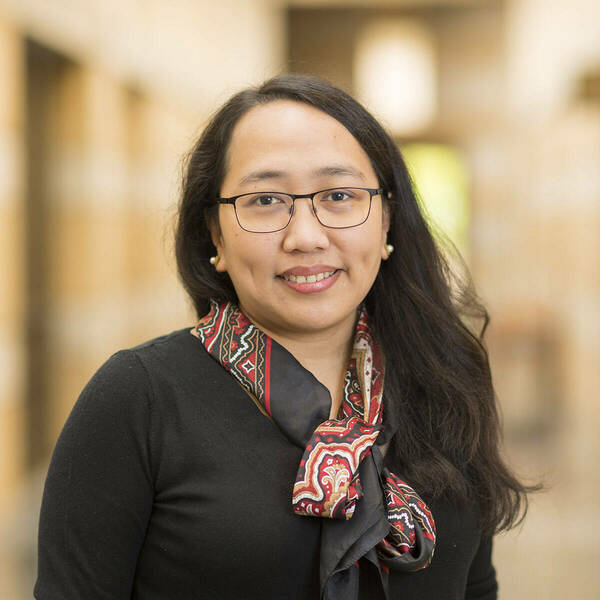
Diane Desierto holds a joint appointment in the Keough School of Global Affairs and the Notre Dame Law School, where she is professor of law and LLM faculty director. Desierto teaches, publishes, and practices in international law and human rights, international economic law and development, international arbitration, maritime security, Association of Southeast Asian Nations (ASEAN) Law, and comparative public law. Desierto is a member of the Expert Group of the United Nations Working Group on the Right to Development, resource expert for the Association of Southeast Asian Nations (ASEAN), former director of studies and faculty at the Hague Academy of International Law, President of the Friends of the Hague Academy Foundation, and Philippines Focal Point for the International Criminal Court Bar Association. She is active as international counsel at matters successfully litigated at the Permanent Court of Arbitration, the UN Human Rights Committee, the Philippine Supreme Court and Southeast Asian agencies, and was appointed by the Philippine Supreme Court as Professor of International Law and Human Rights at the Philippines Judicial Academy.
Desierto has authored and/or edited several books, such as Necessity and National Emergency Clauses: Sovereignty in Modern Treaty Interpretation (Martinus Nijhoff, 2012) which won the Ambrose Gherini Prize in International Law at Yale Law, Public Policy in International Economic Law: The ICESCR in Trade, Investment and Finance (Oxford University Press, 2015), ASEAN Law and Regional Integration: Governance and the Rule of Law in Southeast Asia’s Single Market (with D. Cohen, Routledge, 2020), as well as, to date, about 140 law review articles, book chapters, essays, and book reviews. She serves as a member of the Institute of Transnational Arbitration Academic Council, the UNCITRAL Academic Forum on Investor-State Dispute Settlement Reform, the 2019 Hague Rules on Business and Human Rights Arbitration drafting team, Co-Chair of the Oxford Investment Claims Summer Academy, and has been recognized repeatedly by Who’s Who Legal as one of the Future Leaders in Arbitration. She holds JSD and LLM degrees from Yale Law School, as well as JD cum laude class salutatorian and BSc Economics summa cum laude class valedictorian degrees from the University of the Philippines, and was a former Yale Law clerk at the International Court of Justice for Judges Bruno Simma and Bernardo Sepulveda-Amor.
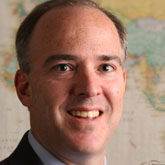
Daniel Philpott is Professor of Political Science at the University of Notre Dame. He earned his Ph.D. in 1996 from Harvard University and specializes in religion and global politics, focusing on religious freedom, reconciliation, the political behavior of religious actors, and Christian political theology. His monographs include Revolutions in Sovereignty (Princeton, 2001), God’s Century: Resurgent Religion in Global Politics (Norton, 2011, coauthored with Monica Duffy Toft and Timothy Samuel Shah), Just and Unjust Peace: An Ethic of Political Reconciliation (Oxford, 2012) and Religious Freedom in Islam: The Fate of a Universal Human Right in the Muslim World (Oxford, 2019). He has promoted reconciliation as an activist in Kashmir and the Great Lakes Region of Africa.
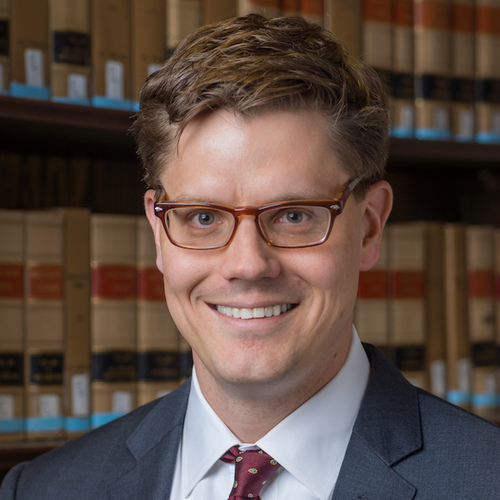
Jeff Pojanowski joined the faculty and community of Notre Dame Law School in 2010 and was promoted to full professor in 2015. He teaches and writes in the areas of administrative law, jurisprudence, legal interpretation, and torts. He has published work in the Georgetown Law Journal, Harvard Law Review, Michigan Law Review, Northwestern University Law Review, the Virginia Law Review, and the Yale Law Journal, among other publications. He serves as co-editor of The American Journal of Jurisprudence.
Pojanowski earned his A.B. in Public Policy with highest honors from Princeton University and graduated magna cum laude from Harvard Law School in 2004, where he was Articles Co-Chair for the Harvard Law Review. After law school, he served as a law clerk to then-Judge John Roberts on the United States Court of Appeals for the D.C. Circuit and then to Justice Anthony Kennedy on the Supreme Court of the United States. He then practiced law with Latham & Watkins in Washington, D.C., where he specialized in appellate litigation and administrative-law matters.
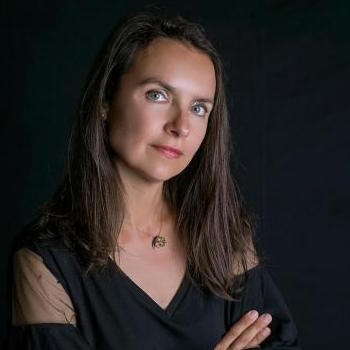
Emilia Justyna Powell is Associate Professor of Political Science at the University of Notre Dame with a concurrent appointment at the Notre Dame Law School. Powell specializes in international law and international courts, as well as the nexus between Islamic law and international law. Her prominent publications include a book published in Cambridge University Press (2011) entitled Domestic Law Goes Global: Legal Traditions and International Courts (with Sara McLaughlin Mitchell), and several articles in top political science academic journals such as International Organization, Journal of Politics, International Studies Quarterly, Journal of Peace Research, Journal of Conflict Resolution, Law and Contemporary Problems, among others. Her most recent book project entitled Islamic Law States and International Law: Peaceful Settlement of Disputes provides a comprehensive examination of differences and similarities between Islamic law and the classical international law, especially in the context of dispute settlement. She has been a fellow at the Oxford Centre for Islamic Studies, and the University of Copenhagen Law School, icourts Centre for International Courts. Born in Toruń, Poland, Emilia Justyna Powell received education in the University of Nicholas Copernicus (Poland), Jean Monnet Center for European Studies, the University of Cambridge, and the Florida State University.
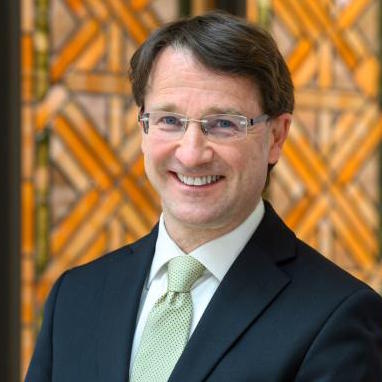
Clemens Sedmak is a professor of social ethics in the Keough School of Global Affairs and director of the Nanovic Institute for European Studies at the University of Notre Dame, where he is also an advisor in Catholic Social Tradition in the Center for Social Concerns and a Kellogg Institute for International Studies faculty fellow. Sedmak focuses his research on social ethics, the Catholic social tradition, and issues of poverty and justice. The author most recently of The Capacity to be Displaced: Resilience, Mission, and Inner Strength (Brill, 2017) and Church of the Poor: Pope Francis and the Transformation of Orthodoxy (Orbis, 2016), Sedmak has published hundreds of books and articles in several languages. Before coming to Notre Dame, he was the F. D. Maurice Professor for Moral and Social Theology at King’s College London. He previously served as director of the Center for Ethics and Poverty Research and chair for epistemology and philosophy of religion at the University of Salzburg, where he was also president of the Institute for Advanced Studies in Social Ethics. Sedmak has held visiting professor posts at Jomo Kenyatta University in Nairobi, Ateneo de Manila University in the Philippines, Germany’s University of Jena, Vienna Business University, and Universidad Iberoamericana in Mexico City. A native of Austria, he holds a PhD in theology from the Catholic University of Linz, and PhDs in philosophy and in social theory from the University of Innsbruck.

Where do we go from here?
Mary Ann Glendon (Harvard University, Chair of the U.S. Commission on Unalienable Rights), offers a keynote address during the Inalienable Rights and the Traditions of Constitutionalism Conference. Kenneth Anderson offers a response. Panelists Moumouni Soumano, Alexandra Huneeus, and Aaron Rhodes offer additional remarks.

Human Dignity, Diversity, and Tolerance
Martha Minow (Harvard University), offers a keynote address during the Inalienable Rights and the Traditions of Constitutionalism Conference. Jacqueline Rivers offers a response. Panelists Ganna Yudkivska and William Saunders offer additional remarks.

Relating a Constitutional Tradition to the Universal and Global Features of Human Rights
Joseph Weiler offers a keynote address during the Inalienable Rights and the Traditions of Constitutionalism Conference. Peter Berkowitz offers a response. Panelists Laurence Burgorgue-Larsen, David Moore, and Gresa Caka–Nimani offer further remarks.

The Commission report, international human rights, and constitutional traditions
Sherman Jackson offers a keynote address during the Inalienable Rights and the Traditions of Constitutionalism Conference.

Natural law and its role in understanding human rights
Robert George offers a keynote address during the Inalienable Rights and the Traditions of Constitutionalism Conference. Meir Soloveichik offers a response.
Theme 1
Relating a constitutional tradition to the universal and global features of human rights.
Keynote Speaker: Joseph Weiler (New York University)
Respondent: Peter Berkowitz (Hoover Institution - Stanford University)
Panelists: Laurence Burgorgue-Larsen (The Sorbonne), David Moore (Brigham Young University), Gresa Caka–Nimani (Constitutional Court of Kosovo)
Moderator: Clemens Sedmak (University of Notre Dame)
Theme 2
What is natural law and why does it matter for (inalienable) rights? What is the role of natural law in the context of a diversity and pluralism of constitutional traditions and understandings of rights?
Keynote Speaker: Robert George (Princeton University)
Respondent: Meir Soloveichik (US Commission on Unalienable Rights)
Panelists: Jane Adolphe (Ave Maria University School of Law), Nigel Biggar (Oxford University), Carlos Bernal (University of Dayton School of Law)
Moderator: Jeffrey Pojanowski (University of Notre Dame)
Theme 3
The method and approach of the Commission report applicable, or adaptable, to different constitutional traditions and their relationship to international human rights?
Keynote Speaker: Sherman A. Jackson (University of Southern California)
Respondent: Chris Tollefsen (US Commission on Unalienable Rights)
Panelists: Timothy Shah (University of Dallas), Asifa Quraishi-Landes (University of Wisconsin Law School), Seth Kaplan (Johns Hopkins University)
Moderator: Emilia Justyna Powell (University of Notre Dame)
Theme 4
Human dignity, diversity, and tolerance; conflicts, tensions, and reconciliation in the American experience.
Keynote Speaker: Martha Minow (Harvard University)
Respondent: Jacqueline Rivers (US Commission on Unalienable Rights)
Panelists: Ganna Yudkivska (European Court of Human Rights), Jim Cavallaro (University Human Rights Network), William Saunders (Catholic University of America)
Moderator: Daniel Philpott (University of Notre Dame)
Theme 5
The Report of the Commission on Unalienable Rights: Where do we go from here?
Keynote Speaker: Mary Ann Glendon (Chair of the U.S. Commission on Unalienable Rights; Harvard University)
Respondent: Kenneth Anderson (US Commission on Unalienable Rights)
Panelists: Moumouni Soumano (Kellogg Institute), Alexandra Huneeus (University of Wisconsin Law School), Aaron Rhodes (Senior Fellow, Common Sense Society; President, Forum for Religious Freedom-Europe)
Moderator: Diane Desierto (University of Notre Dame)
All panels will take place in the Hesburgh Center Auditorium
Sunday, November 14
14:00 – Welcome and Introduction
Paolo Carozza, (Director of the Kellogg Institute and member of the Commission on Unalienable Rights)
THEME I: Relating a constitutional tradition to the universal and global features of human rights.
14:15 – Theme I Keynote
Joseph Weiler (New York University), keynote presenter
Peter Berkowitz (Hoover Institution - Stanford University), respondent
15:30 – Break
15:45 – Theme I Panel Discussion
Laurence Burgorgue-Larsen (The Sorbonne), panelist
David Moore (Brigham Young University), panelist
Gresa Caka–Nimani (Constitutional Court of Kosovo), panelist
Clemens Sedmak (University of Notre Dame), moderator
17:00 – Break
18:00 – Dinner (for invited guests)
THEME II: Natural law and its role in understanding human rights
19:30 - Theme II Keynote
Robert George (Princeton University), keynote presenter
Meir Soloveichik (Congregation Shearith Israel, US Commission on Unalienable Rights), respondent
Monday, November 15
08:30 – Welcome and introduction
THEME II (continued)
08:45 – Theme II Panel Discussion
Jane Adolphe (Ave Maria University School of Law), panelist
Nigel Biggar (Oxford University), panelist
Carlos Bernal (University of Dayton School of Law), panelist
Jeffrey Pojanowski (University of Notre Dame), moderator
10:00 – Break
THEME III: The Commission report, international human rights, and constitutional traditions
10:15 – Theme III Keynote
Sherman A. Jackson (University of Southern California), keynote presenter
Chris Tollefsen (University of South Carolina, US Commission on Unalienable Rights), respondent
11:30 – Break
12:00 – Lunch (for invited guests)
13:30 – Theme III Panel Discussion
Timothy Shah (University of Dallas), panelist
Asifa Quraishi-Landes (University of Wisconsin Law School), panelist
Seth Kaplan (Johns Hopkins University), panelist
Emilia Justyna Powell (University of Notre Dame), moderator
14:45 – Break
THEME IV: Human dignity, diversity, and tolerance
15:00 – Theme IV Keynote
Martha Minow (Harvard University), keynote presenter
Jacqueline Rivers (Harvard University, US Commission on Unalienable Rights), respondent
16:15 – Break
16:30 – Theme IV Panel Discussion
Ganna Yudkivska (European Court of Human Rights), panelist
Jim Cavallaro (University Human Rights Network), panelist
Daniel Philpott (University of Notre Dame), moderator
William Saunders (Catholic University of America), panelist
17:45 – Break
18:00 – Dinner (for invited guests)
1930 - Cultural Event
Tuesday, November 16
08:30 – Welcome
THEME V: Where do we go from here?
08:45 – Theme V Keynote
Mary Ann Glendon (Harvard University, Chair of the U.S. Commission on Unalienable Rights), keynote presenter
Kenneth Anderson (American University, US Commission on Unalienable Rights), respondent
10:00 – Break
10:15 – Theme V Panel Discussion
Moumouni Soumano (Kellogg Institute), panelist
Alexandra Huneeus (University of Wisconsin Law School), panelist
Aaron Rhodes (Common Sense Society, Forum for Religious Freedom-Europe), panelist
Diane Desierto (University of Notre Dame), moderator
11:30 – Break
11:45 – Plenary Session and Final Comments
Peter Berkowitz (Hoover Institution - Stanford University), panelist
Paolo Carozza (University of Notre Dame), panelist
David Pan (University of California, Irvine), panelist
Roger Alford (University of Notre Dame), moderator
13:00 – Lunch & Departures





